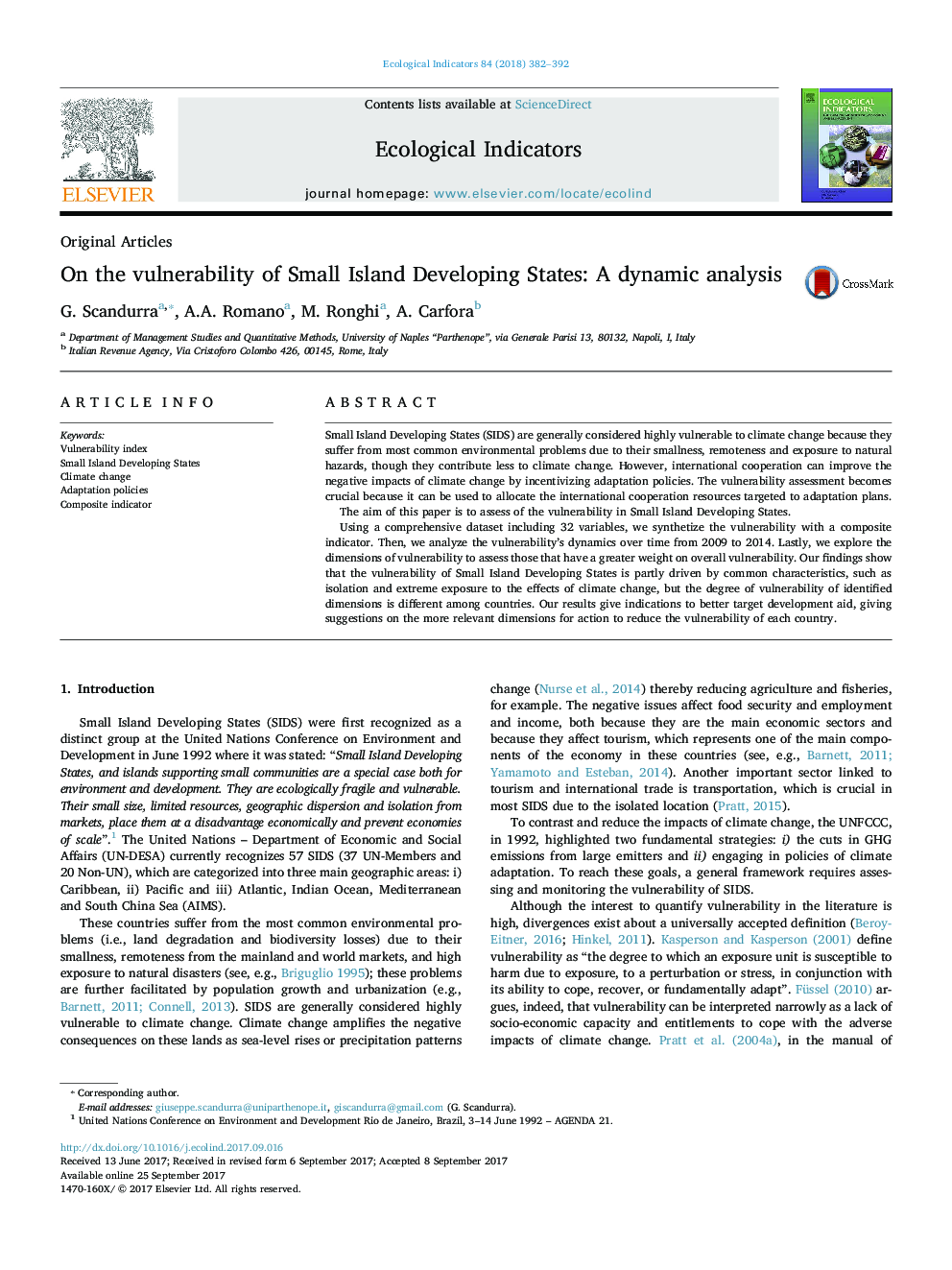| Article ID | Journal | Published Year | Pages | File Type |
|---|---|---|---|---|
| 5741561 | Ecological Indicators | 2018 | 11 Pages |
â¢SIDS are ecologically fragile and economically vulnerable.â¢The future of the SIDS is seriously compromised by the effects of climate change.â¢SIDS are generally the most vulnerable countries in the world.â¢Cooperation reduces the impact of climate change by promoting adaptation policies.â¢International aid should see to the dimensions of vulnerability.
Small Island Developing States (SIDS) are generally considered highly vulnerable to climate change because they suffer from most common environmental problems due to their smallness, remoteness and exposure to natural hazards, though they contribute less to climate change. However, international cooperation can improve the negative impacts of climate change by incentivizing adaptation policies. The vulnerability assessment becomes crucial because it can be used to allocate the international cooperation resources targeted to adaptation plans.The aim of this paper is to assess of the vulnerability in Small Island Developing States.Using a comprehensive dataset including 32 variables, we synthetize the vulnerability with a composite indicator. Then, we analyze the vulnerability's dynamics over time from 2009 to 2014. Lastly, we explore the dimensions of vulnerability to assess those that have a greater weight on overall vulnerability. Our findings show that the vulnerability of Small Island Developing States is partly driven by common characteristics, such as isolation and extreme exposure to the effects of climate change, but the degree of vulnerability of identified dimensions is different among countries. Our results give indications to better target development aid, giving suggestions on the more relevant dimensions for action to reduce the vulnerability of each country.
